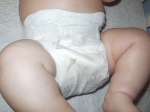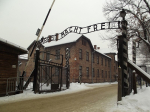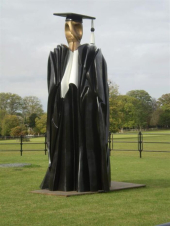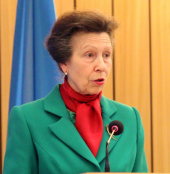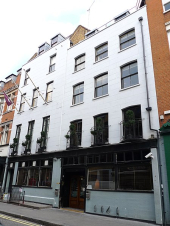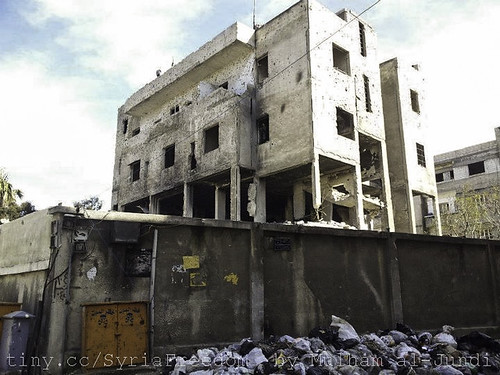
Syrian government troops using tanks and helicopters massacred more than 150 people in the central province of Hama, the Syrian Observatory for Human Rights said, while a rebel leader put the toll at more than 200.
Government troops bombarded the village of Treimsa using tanks and helicopters, according to the Observatory, which earlier put the death toll at more than 100.
Observatory chief Rami Abdel Rahman told AFP by telephone that the bodies of 30 villagers had already been identified following the sustained attack, which brought the day's total death toll in the conflict-torn nation to over 200.
Rebel leader Abu Mohamad, chief of a group based further to the north, told AFP early Friday that the attack using helicopters, tanks and multiple rocket-launchers had killed more than 200 people in the village.
Abu Mohamad said he had been in phone contact with a resident of Treimsa who told him that government forces were on hills a few kilometres (miles) outside the town.
The army and the Shabiha, pro-regime militia who are said to accompany troops to make sure they do not desert, started to bombard Treimsa "Thursday around 11:00 am (0800 GMT) and finished around 9:00 pm," Abu Mohamad said.
But a Hama-based activist who identified himself as Abu Ghazi told AFP via Skype that regime troops started shelling the village earlier, at around 6:00 am.
"That was followed by clashes with the (rebel) Free Syrian Army, but the FSA does not have a big presence in Treimsa and could not fight long," said the activist.
"The number of martyrs is very high partly because the army shelled a mosque where scores of people had taken shelter, to treat the wounded and hide from the bombs," Abu Ghazi added.
"But it is obvious that the regime knows no limits. The mosque was shelled, it collapsed, and that killed the people in it."
The village, which had a population of 7,000, he said, "is empty now. Everyone is dead or has run away."
"Almost 30 army vehicles arrived, and surrounded the village completely. There wasn't a single way out," said Ibrahim, another activist from Treimsa. "Anyone who tried to escape through the fields was shot."
Pro-regime militiamen from neighbouring Alawite villages entered the village after the army raided it, Ibrahim told AFP via Skype. "After the shelling, the army came in with light weapons, and the shabiha (militiamen) followed, armed with knives."
Clashes inside the besieged village were vicious, he said, noting that "whole families were killed. There was a real street war for several hours."
Treimsa is located near Qubeir, where at least 55 people were killed on July 6, according to the Observatory. Like Qubeir, Treimsa is a majority Sunni town situated near Alawite villages.
President Bashar al-Assad belongs to the Alawite community -- an offshoot of Shiite Islam -- although the vast majority of Syrians are Sunni.
The state-run SANA news agency said there had been clashes between the army and an armed "terrorist" group in the village but made no mention of a massacre and gave no overall death toll.
"There were heavy losses among the ranks of the terrorists," said the report, adding that three government soldiers were killed.
The head of the opposition Syrian National Council, Abdel Basset Sayda, voiced outrage about the latest killings and called for a tough UN resolution that allows for military intervention against the Damascus regime.
"This was a massacre perpetrated by the Syrian regime," he said, speaking to Al Jazeera TV.
"It is a shame for the UN Security Council and the Arab League."
"What we want is a clear and straightforward resolution under Chapter VII of the UN Charter which puts all the options on the table, including the use of force. This Syrian regime only understands the language of force."
Abu Ghazi said that with Idlib in the northwest, Homs in the centre and much of the countryside of Aleppo in the north "out of control, the regime is trying to keep Hama on its side."
"Hama is in the centre of Syria, and is a link in a chain of provinces where anti-regime feeling is strong; the regime will do anything to keep it controlled."
The Observatory said more than 17,000 people have been killed since the uprising erupted in mid-March last year.
It is not possible to independently verify death tolls. The United Nations stopped compiling such figures at the end of 2011.
AFP, photo by Freedom House














